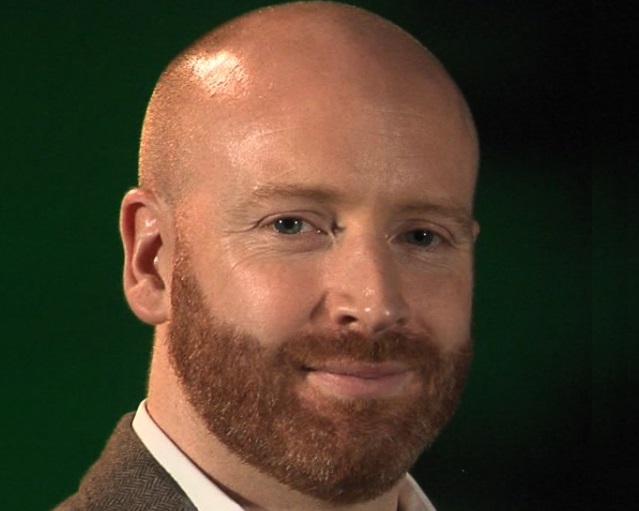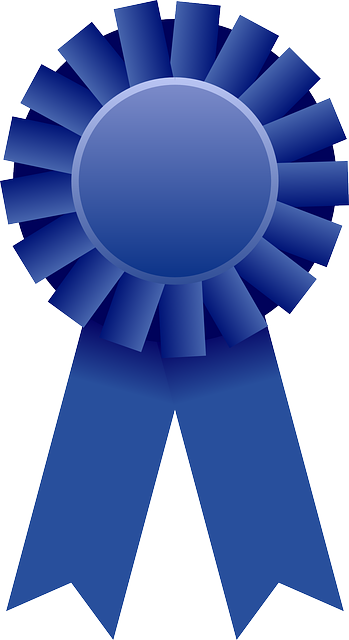2017
2017 Community2017 #1 Newsletter (January)
2017 #1 Newsletter (January)|
ACBS Newsletter - January 2017
|
|||
It's All Fun and Games Until Someone Loses an "I": Webinar with Louise McHugh, PhD and Priscilla Almada, Ph.D.
Relational Frame Theory can be a daunting area of research to comprehend, but is crucial in establishing the theoretical underpinnings of ACT. However, the ACBS Student SIG have partnered up with Louise McHugh and Priscilla Almada to provide a free webinar for ACBS members walking through the relational frames associated with identifying self in the context of others (i.e., deictic relational frames). This accessible, experiential, and empirically grounded workshop guides viewers through a brief primer on RFT, the self/others as conceptualized by RFT and ACT, and the ways in which disruptions in self-other framing can lead to psychological problems. The workshop also introduces the flexible connectedness model that integrates deictic framing, difficulties in empathizing, and experiential avoidance in order to predict socially maladaptive behaviors. The video is available on for watching here, and you can catch up on other webinars on the Student SIG Webinar page. Student ACBS members who are interested in getting connected with others should visit the Student SIG page for information about the SIG and instructions on how to join! |
|||
Student Spotlight Winner
We are happy to announce the first student spotlight winner, in conjunction with the ACBS Student SIG! This month's featured student, Corinna Stewart, is currently in her final year of her Ph.D. at NUI Galway, where she has been studying paranoia from a CBS perspective using the IRAP and other RFT-based methods. She is also currently serving as the research team leader with commit and act, a non-governmental organization utilizing ACT, PROSOCIAL, and CBS principles to bring psychotherapeutic support to Sierra Leone. To learn more about Corinna, please visit her Student Spotlight Award Winner page. The purpose of the Student Spotlight Award is to highlight students who are doing important work in the CBS community, whether for research, clinical, and/or volunteer-humanitarian efforts. This is a way to highlight their achievements, let the ACBS community know the important work students are doing, and to provide a platform for mentoring, collaboration, professional development, and other conversations around highlighted areas. |
|||
TED Talks Translations
One of the most important tasks given to researchers, scientists, and academics is the need to disseminate our theories and findings to the community at large. In the modern era, an effective way of doing so is by using the TED (Technology, Entertainment, and Design) platform to film and share talks to reach a wider audience. However, this resource is often limited in scope to English-speaking populations. However, thanks to the commitment of members within the ACBS community, they have created and compiled a list of translated TEDx Talks across 20 languages. |
|||
Learn and ACT: Changing Prejudice Towards Mental Illness
One of the most problematic issues facing clients is the stigma that they feel from others for their struggle with mental illness. In a study published in JCBS, Kenny & Bizumic compared an ACT-based intervention to an educational intervention in reducing stigmatizing attiudes towards people with mental illness. Though both interventions were effective at reducing stigma, participants who were given the ACT-based intervention demonstrated greater improvements. The authors also developed a new measure for Prejudice towards People with Mental Illness (PPMI), consisting of four factors (fear/avoidance, malevolence, authoritarianism, and unpredictability) and found the measure to demonstrate reliability, divergent validity, and convergent validity. These findings have implications on the design of future stigma reduction interventions, and the development of new methods to target malevolent attitudes towards mental illness. |
|||
2017 Annual Conference Registration and Scholarships Open
ACBS is pleased to announce that registration for our 15th annual conference, held on June 22-25 in Seville, Spain, is officially open! Make sure to register as soon as possible, as early registration rates end on April 7th. We are also collaborating with oneworld® to provide discounted airfare prices for travel - more details can be found on our Travel/Flight Information page. The Call for Submissions closes February 15 (March 15 for posters) so be sure to submit your best work! Estamos aceptando presentaciones para conferencias. Se aceptan presentaciones en Inglés o Español. In addition, ACBS is offering a limited number of travel and/or registration fee awards and scholarships and awards. We urge you to visit our scholarship page to see if you qualify for any of these scholarships! Please note that you will need to be logged into your account in order to access and submit these applications. |
|||
Building Bridges
The ancient capital city of Edinburgh in Scotland played host to the most modern advances in Contextual Behavioural Science, ACT, & RFT in late November 2016. This was the third conference, jointly hosted by the British Association for Behavioural and Cognitive Psychotherapy ACT Special Interest Group and the UK & Ireland ACBS chapter. There were two days of preconference workshops, at an introductory (Joe Oliver and Richard Bennet) and advanced (Robyn Walser) level as well as one day preconference workshops on adapting ACT for people who have been diagnosed with personality disorder (Helen Bolderston) and on creating psychological flexibility in communities and organisations (Ross White). Click here to read more about this exciting conference! |
|||
Get Acquainted with ACBS |
|||
| We are pleased to announce the creation of a new Special Interest Group dedicated to Women in ACBS. Thanks to the efforts of Robyn Walser, Sandra Georgescu, and many others, our members have developed this SIG to address gender biases that exist in and outside of ACBS, providing a safe space in which individuals may speak from or share women's perspectives. Please join us in celebrating and applauding this commitment to diversity, and consider becoming a member of the SIG! | |||
|
|||
| Connect. Share. Grow. |
See you at the Seville, Spain World Conference! To be held June 20-25, 2017. Go here for more information. |
 |
|
|
|
|||
2017 #2 Newsletter (March)
2017 #2 Newsletter (March)|
ACBS Newsletter - March 2017
|
|||
Pre-Conference PROSOCIAL Workshop Highlight
Some of the most significant problems facing the human race - climate change, poverty, discrimination - are ones that can only be realistically tackled at the group level. ACBS is pleased to present "Igniting change in your groups: the 8 PROSOCIAL principles in action", a pre-conference workshop focused on improving the effectiveness of groups, across contexts, in order to bring about real, meaningful, social change. We had a chance to catch up with one of the speakers for the event, Paul Atkins, Ph.D., to briefly speak about his research, his work, and some of the different challenges associated with bringing about change at the individual level compared to the group level. Please check out the interview on the ACBS website here. If you'd like to know more about PROSOCIAL or the pre-conference workshop, we encourage you to visit the PROSOCIAL workshop page. To learn more about the other pre-conference workshops, you can see a list of what's being offered here. Make sure to register for the conference and pre-conference workshops by 7 April in order to qualify for the early registration rates! |
|||
2017 Annual Conference Early Registration rates end 7 April!
Just a reminder that the early registration rates for our annual conference end on April 7th! Make sure to register before then as the money you save could easily be put toward exploring the beautiful city of Seville! Check out our Things to Do and Traveling Tips page to see some of the wonderful things Seville has to offer, and to start planning some fun events to do while you're there! Make sure to book a room as soon as possible - we have negotiated a group block rate at the Melia Seville, as well as at the nearby Hotel NH Collection Seville, but spaces are limited. To check out our block rates, and to reserve your room at the block rates, please visit our conference hotel page! We are also collaborating with oneworld® to provide discounted airfare prices for travel - more details can be found on our Travel/Flight Information page. This year we also have our first ever additional Tours exploring Southern Spain. Bring your partners, guests and spouses! The Brief Schedule of the program will be available by 4 April, with the schedule, presenters, and titles. |
|||
2017 North Central New Jersey Affiliate Luncheon
Looking for ways to connect to and become involved with other local and regional members of the ACBS community? Though joining an ACBS Chapter is possibly one of the best ways to get connected, individuals also have the option of joining or starting an ACBS Affiliate. Affiliates are a quicker, smaller, and simpler way to coordinate a local ACBS group. Additionally, in high population areas, Affiliates provide members with a way to get connected at a smaller, more tightly-knit level. The North Central New Jersey Affiliate, for example, holds an annual lunch event with an invited speaker: this year, the lunch was held at the Roots Steakhouse with featured speaker Jonathan Fader, Ph.D., author of "Life As Sport: What Top Athletes Can Teach You About How To Win In Life.” To read more about the event, and for some simple advice on how to host a well-attended event, please check out our news article. To find out if there is an ACBS Affiliate near you, or for more information on how to start an ACBS Affilitae, visit our ACBS Affiliates page on our website. |
|||
15 in 15 Podcast with Richard Bennett
We are very excited to share that ACBS member and ACT Peer-Reviewed trainer Richard Bennett is hosting an ACBS Annual Conference podcast series entitled "15 in 15". Join Dr. Bennett as he does 15 minute interviews with some of our fascinating ACBS colleagues, as well as some of the key contributors to our annual conference, including leading Relational Frame Theory researcher, Yvonne Barnes-Holmes; current ACBS President D.J. Moran; and co-founder of Acceptance and Commitment Therapy, Steven Hayes. You can also check out the podcast on iTunes or on the ACBS website. More episodes will be coming very soon, so stay tuned! |
|||
Mid-Atlantic Chapter (MAC-ACBS) Graduate Training Program
One of the most important goals of ACBS is that of dissemination: to inform others and spread contextual behavioral science to places where it is lacking. Though this can be as dramatic as providing outreach and crisis intervention services to individuals residing in Sierra Leone, it can also happen in our own backyards, as evidenced by the recent work of the Mid-Atlantic Chapter(MAC) of ACBS. In an effort to spread CBS principles, the MAC leadership elected to reach out at the local level and contact graduate university programs in the area. Out of the 30-40 programs contacted, 3 invited the MAC to provide training for their graduate students, resulting in a positive student response and invitations to come back for subsequent trainings. To learn more about this experience, please visit the news page, and check out the MAC Chapter to learn more about the chapter. And join us in thanking Miranda Morris, Chris Wemple, and Staci Martin for volunteering their time to conduct these trainings! You guys rock! |
|||
2017 Student Spotlight Winners
We are happy to announce the second and third student spotlight winners, in conjunction with the ACBS Student SIG! This month's first featured student is Cainã Gomes. He is currently finishing up his master's degree at the Pontifícia Universidade Católica de São Paulo working on experimental research exploring rule-governed behavior and the transformation of stimulus functions under the supervision of Willia Perez, Roberta Kova, Julio de Rose, and Dermot Barnes-Holmes. Cainã also volunteers at the Universidade de São Paulo hospital, working with children with severe symptoms of obsessive-compulsive disorder. Cainã states that he hopes to strengthen ties between basic laboratory research and the clinical applied settings, which is particularly important given the prevalence of conservative behavior analysts in Brazil. |
|||
Our next featured student is Victoria Ameral, a 5th year graduate student at Clark University under the supervision of Kathleen Palm Reed. Victoria is currently exploring the effects of values clarification in opioid use disorder as her dissertation research. More specifically, she is evaluating whether engaging in a values clarification exercise increases motivation for abstinence, and if this increase is mediated by improvements in the ability to delay gratification. Victoria also did her master's thesis on the differential impact of negative and positive reinforcement process on quality of life within the context of depression. Though her research and clinical work have been focused on the area of substance abuse, Victoria is also interested more broadly in any research that utilizes transdiagnostic, CBS-informed processes. Victoria hopes to continue her research career by continuing to bridge the gap between clinical science and practice in substance abuse treatment, with an emphasis on values and motivation-related processes. To learn more about our student spotlight award winners, please visit the Student Spotlight Award Winner page. If you would like to apply for an award, please send in an application by March 31. |
|||
|
|||
| Connect. Share. Grow. |
See you at the Seville, Spain World Conference! To be held June 20-25, 2017. Go here for more information. |
 |
|
|
|
|||
2017 #3 Newsletter (May)
2017 #3 Newsletter (May)|
ACBS Newsletter - May 2017
|
|||
Interview with Nanni Presti
The ACBS Chapter and SIG Committee Co-Chairs Mark Sisti and Brian Pilecki interviewed Nanni Presti, as part of the commitee's Chapter Roundtable series. | |||
The ACBS Grant Committee Needs Your Help!ACBS provides two $5,000 grants for research that advances the field of contextual behavioral science through Research Development Grant applications approved by the ACBS Grant Committee. We are looking for volunteers, for both the current grant cycle, as well as standing members of the Grant Committee to help us select and award grant applicants. Each grant will be reviewed by two reviewers, and the review of each application takes approximately 30 minutes. If you are willing to be a grant reviewer and help further high-quality, innovative research projects that expand the field of CBS, we encourage you to fill out a quick, 2-minute webform. You can learn more about the call for reviewers, including specific areas of expertise that we are looking for, on our news page. To learn more about previous research that has been awarded the ACBS Research Development Grant, please check out our most recent winners here. The call for Grant applications will open September 1, 2017. |
|||
ACT recognized by Swedish Medical Community!
To our knowledge, Sweden is the first country to recognize ACT in a medical profession - The Swedish Association of Physiotherapy (Physical Therapy) has officially recognized acknowledged ACT as a theory and practice in the reviewed version of the professional competencies. The reference is a book given by the Swedish University Press (Studentlitteratur) where Graciela Rovner, a physiotherapist who also works as an ACT peer-reviewed trainer, wrote a chapter about using ACT in the context of physiotherapy and pain rehabilitation. |
|||
ACBS FellowsACBS is pleased to announce our 2017 class of Fellows. |
|||
Michael J. Asher Student Dissertation Award Winner
It is our great pleasure to announce the winner of the new Michael J. Asher Student Dissertation Award, Danielle Moyer, a Ph.D. student at the University of North Texas, studying under Dr. Amy Murrell, won the award to support her dissertation proposal examining the role of empathy and perspective taking in predicting and influencing bullying behaviors among middle-school aged teenagers. More specifically, Danielle hopes to replicate previous research showing how an RFT-based model of empathy in young children, and uncover what role perspective-taking deficits play in the expression of peer aggression. Danielle also seeks to elucidate the common ground between deictic framing and theory of mind, and promote the prevention and intervention of bullying behaviors using RFT-based tasks. Join us in congratulating Danielle on her award, and wishing her the best of luck on her dissertation project! |
|||
Reflections on the Atlantic Canada Chapter's First Year
Starting and maintaining a regional ACBS chapter can be a daunting experience. However, help can sometimes come from unexpected places, as Atlantic Canada Chapter president, Susie McAfee, found out. She has kindly provided us with her own reflections of the first year of the Atlantic Canada Chapter's existence, providing some insight and experience into some of the ups-and-downs associated with starting a new chapter. Dr. McAfee also elaborates on some of the perks that come with chapter membership. To learn more about this experience, please visit our news page, and check out the Atlantic Canada Chapter webpage to learn more about the chapter. We also encourage you to check out our list of affiliated chapters, and consider joining the chapter associated with your region! |
|||
Student Spotlight Award Winners
It is our pleasure to introduce our most recent student spotlight award recipient, in conjunction with the ACBS Student SIG! This month's first featured student is Sonia Singh, a third year graduate student studying at Bowling Green State University under Dr. Bill O'Brien. Sonia has been involved in several research studies, including using FAP to improve quality-of-life for nursing home residents, and ACT to decrease workplace stress, assault, injury, and abuse for nurses and nurse aides in long-term healthcare settings. Sonia plans to continue her academic work beyond her student career, and plans to utilize contextual behavioral therapies with underserved and stigmatized populations. You can learn more about Sonia and her work here. |
|||
Our next featured student is Wang Fenfen, a 2nd year Masters student at the Institute of Psychology, Chinese Academy of Sciences. under the supervision of Dr. Zhu Zhuohong. Wang has been involved in disseminating contextual science to lay populations, having published over 30 popular science articles on ACT and RFT across Chinese social media websites. Wang has also investigated the use of multiple exemplar training to teach relational framing skills for children with autism spectrum disorders. Wang hopes to continue studying the assessment and training of derived relational responding among autism spectrum disordered individuals. Find out more about Wang's experiences here! |
|||
Get Acquainted with ACBS - Many Congratulations!Please join us in welcoming and congratulating our newly elected board members! This year, we are welcoming |
|||
Taking CBS to the CommonersFrom Dr. Paul Atkins: If you read the title of this piece, you probably thought I was talking about poor people, the dispossessed or maybe that I was hopelessly elitist. But by "commoners" I mean users of the commons. A commons is a shared resource, combined with an interested community and a set of social agreements and norms that the community use to manage the resource. The internet has made cooperation possible with lots of unexpected forms of the commons: knowledge (e.g. Wikipedia or ACT therapy techniques), cultural products (such as stories and songs) or even experiences (riding the waves at your favorite surf beach). Anytime humans gather together and cooperate, and where a system of agreements has developed that is contextually appropriate and 'owned' by the community can be seen as a commons. The commons is a huge idea - it is the 'third way' in the sense that it complements the activities of markets and states, perhaps allowing us to live closer to our values through empowerment and authenticity. So why am I talking about all this? Because ACT and CBS are being used to build a new commons called PROSOCIAL - a process that helps people build psychological flexibility, perspective taking and consensus-oriented, purposeful and equitable decision making in the service of a new vision of society. The PROSOCIAL initiative has been primarily driven by David Sloan Wilson, an evolutionary biologist, and ACT co-founder Steve Hayes. When we first started articulating the PROSOCIAL process, I think we had a sense of its transformative power. But the more we work with it, the more we see that it is not just another management model, it is a whole new way of implementing the vision of ACBS. We are now using the model with public service agencies, corporations, schools, community groups and other not-for-profit groups. If you are interested in learning more, you can come to our preconference workshop in Seville or email me for more information. ACT co-founder Steve Hayes has been a driving force in this effort. Evolutionary ideas are changing his thinking about therapy as he continues to advance ACT work in clinical settings. Interested in cutting edge ACT for your own practice? To be the first to hear some of Steve's latest methods join him for a one-time live event online: |
|||
ACT at the cutting edge: A live-only event with Steve Hayes |
|||
|
|||
2017 #4 Newsletter (September)
2017 #4 Newsletter (September)|
ACBS Newsletter, September 2017
|
|
ACBS Grant Applications Accepted Ending October 15th
Are you a researcher or student searching for a funding source for any contexual behavioral science-related project? ACBS provides two grants, up to $5,000 USD, for research that advances the field of contextual behavioral science through Research Development Grant applications approved by the ACBS Grant Committee, chaired by JoAnne Dahl, Ph.D. Projects eligible for the grant are relatively broad, as any topic within the array of CBS will be considered. To learn more about previous research that has been awarded the ACBS Research Development Grant, please check out our most recent winners here. The call for Grant applications will be open September 1 - October 15, 2017, and awards will be announced on November 30th. Best of luck! |
|
New Version of the IRAP Software AvailableFor those of you interested in conducting basic RFT research, we are delighted to announce that a new version of the IRAP has been made available to researchers! The Ghent-Odysseus Implicit Relational Assessment Procedure (GO-IRAP) has been designed to be both easy to install and user-friendly for setting up. The program includes features such as training and testing IRAPs, options for using text or images as labels, targets, and response options, and support for traditional (label + target) and natural language (sentence-based) IRAP formats. The GO-IRAP software and manual are freely available to download for ACBS members here. Please note that bug-testing for the software is still ongoing, and any errors in the program or inaccuracies in the procedure should be sent to the appropriate parties (included in the IRAP instructions). Special thanks to Dermot Barnes-Holmes and the rest of the team at Ghent University for all of their tireless work! |
|
ACBS and the Aging Population
Many of us are aware of the growing numbers of geriatric populations across cultures worldwide, and the shortage of health care workers in the geratric sectors. Moreover, care needs of geriatric individuals are often greater than younger cohorts, and many individuals over the age of 80 experience symptoms of cognitive decline, and are marginialized both economically and socially. In this talk presented at the 14th annual ACBS conference, Susan McCurry describes how psychological and behavioral interventions for older adults have changed over time, and discusses how the focus on contextual factors underscored by contextual behavioral science places the ACBS community in a unique position to revolutionize geriatric and dementia mental health care, both at the individual level of care delivery and the societal level via policy and community-based interventions. We also invite you to look through some of the other videos we have available on our Videos page, which includes talks from previous ACBS conferences, interviews with fellow ACBS members, TED talks, and more! |
|
Changes in Valued Behaviors and Functioning through ACT
A key component in Acceptance and Commitment Therapy is to get clients to become more aware of their values, and to change their behaviors such that they are able to live in directions consistent with said values in spite of barriers that may come up along the way. In this recent study of treatment-resistant panic disordered individuals, Hanna Wersebe and colleagues found that the difference in participants' self-reported importance of various values domains and their engagement in values-relevant behaviors decreased through treatment, suggesting that this discrepancy may be an important point to monitor and target. Moreover, the researchers compared changes in social and non-social values domains and found significantly higher activity in social domains in their sample. Decreased valued living discrepancy in social domains was a significant predictor of post-treatment functioning. To read the full study, or any other studies published in JCBS, please visit the ACBS member portal to JCBS here. If you would like to contribute to JCBS, please see our submission information page. If you would like a better resource to cite JCBS content, see our JCBS reference sharing page which includes a downloadable Endnote file for all published and in-press JCBS articles. |
|
ACBS Developing Nations Training Fund Recognition
The ACBS Developing Nations Training Fund received a surprise acknowledgement in a recent issue of the Associations Now online magazine, published by the ASAE. In particular, they different funding methods and scholarship programs implemented by associations to improve access and conference attendance, and highlighted the Developing Nations Training Fund as an example that other organizations could implement. The complete article can be freely accessed here. ASAE is a membership organization of more than 39,000 association executives and industry partners representing more than 7,400 organizations. Its members manage leading trade associations, individual membership societies, and voluntary organizations across the United States and in nearly 50 countries around the world. We at ACBS are proud to be leaders in promoting diversity within our organization, and extend a heartfelt thank you to the Developing Nations Committee, and to all the generous donors who have made this program possible. To keep these important scholarships a part of our ACBS programming, please consider donating here. |
|
Submitting Items to the Newsletter and Social Media!Do you have something newsworthy for ACBS to share? If you have any ideas for articles or Q&A sessions that you would like to see included in the next ACBS newsletter or on our social media, please submit them via e-mail to [email protected]. We would love to share your community projects, research findings, outreach programs, and other relevant news to the ACBS member base! |
|
Connect. |
See you at the Montreal, Canada, World Conference! To be helf July 24-29, 2018. Go here for more information. |
 |
You are receiving this newsletter because you are a member of ACBS.
If you no longer wish to receive these emails, you can remove yourself from them by clicking here:
{action.optOutUrl}
If this link does not work for you, email your unsubscribe request to [email protected].
{domain.address}
2017 #5 Newsletter (October)
2017 #5 Newsletter (October)|
ACBS Newsletter - October 2017
|
|||
ACT Online Peer Supervision Group: Connect Online and Learn from Your Peers
Do you want to learn to become more skilled as an ACT practitioner and gain support from other ACBS members online? The ACT Online Peer Supervision Group is a global forum that aims to provide supervision between colleagues on the experiential practice of ACT in a supported and safe group environment. The ACT Peer Supervision Group meets every two weeks and is hosted by Peer Facilitators. The ACT Online Supervision Group is free to all ACBS members. |
|||
Finding the Door to the CBS House: How a Teacher Discovered ACT and Now Uses CBS in Her Classroom
Lauren Porosoff is a sixth grade school teacher in the Bronx, New York (USA). After discovering ACT five years ago, she has been applying CBS concepts and processes to help students connect their assignments and interactions to their values, and build more satisfying learning experiences and communities. You can read about Lauren's ACT journey here. |
|||
Linguistic Mindfulness at the ACBS World Conference
This summer Jacqulyn Kowalsky joined us in Spain for her first ACBS World Conference. In this article Jacqulyn Kowalsky reflects on her conference experience and provides wonderful insight on how we can improve understanding in international settings. Read the full article on the ACBS website here. |
|||
Adding a Functional Utility Score to the Evaluation of Behavioral Health Screens in Integrated Care Settings: What's All the FUS About?
In JCBS Vol. 6 Issue 2, Alexandros Maragakis and colleagues reflect on current deficits in creating new behavioral health screens for primary care. The paper provides a justification and framework for examining the concept of a "Functional Utility Score" (FUS), which assesses a screen's ability to be useful within its intended system of care. ACBS members can read it for free (or other articles published in the Journal of Contextual Behavioral Science) on the ACBS member portal to JCBS. |
|||
ACBS Fellow James Herbert Inaugurated as President of The University of New England
Congratulations to ACBS Fellow James D. Herbert, Ph.D. for being inaugurated as the new President of the University of New England. Herbert was inaugurated on Saturday, September 9, 2017 at the university's Biddeford, Maine (USA) campus. Herbert was inducted as an ACBS fellow in 2014 and has published several articles in the Journal of Contextual Behavioral Science. |
|||
ACBS Student Spotlight Program: Applications due November 24
The ACBS Student Spotlight Program highlights students who are doing important work in the CBS community, whether for research, clinical, and/or volunteer-humanitarian efforts. This program is a great way to highlight their achievements and let the ACBS community know about important work students are doing. Six students are selected annually. The application deadline is November 24, 2017. Learn more about the program here. |
|||
|
|||
|
Connect. Share. Grow. |
See you in Montréal, Canada, at the July 24-29, 2018. Click here for more information. |
 |
|
|
|
|||
Finding the Door to the CBS House
Finding the Door to the CBS House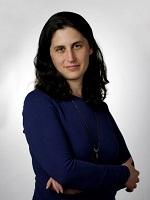
By Lauren Porosoff
I joined ACBS kicking and screaming. My husband, Jonathan Weinstein, tried to get me interested, but I said, “This is for psychologists. I’m a middle school teacher.” He told me I was unworkably fused with my content, and I didn’t get the joke.
At the 2012 World Conference in Washington, DC, Jonathan went to talks while I chased our 8-month-old son around the hotel. Eventually I got bored and found the conference bookstore. While many titles had familiar psychology words like “depression” and “anxiety,” others said stuff about values and commitment. I was reluctantly curious.
From my earliest days of teaching, I’ve been trying to help my students find meaning and fulfillment in school. I’m not interested in making students happier. I’m interested in students learning things that matter, to them and in the world. I’m interested in their working hard and being miserable, not because I hate children and revel in their misery, but because any meaningful work will sometimes entail frustration, embarrassment, boredom, worry, and other kinds of pain. What if teachers like me could learn to help students accept those feelings in the service of doing meaningful work and having meaningful relationships at school? What if we could learn to design curriculum and assignments that reflect students’ values?
Maybe there was something to this ACT stuff.
Jonathan told me to learn about basic science and relational frame theory, but they were written in a language I didn’t speak. Even the ACT book, Acceptance and Commitment Therapy, was impenetrable. I felt stupid. But then, I read Russ Harris’s ACT Made Simple. And I understood it! I also read Get Out of Your Mind and Into Your Life and The Joy of Parenting, because they’re written for a lay audience. And I understood them too. When I then tried Acceptance and Commitment Therapy again, I could understand the terms because I had a sense of the underlying processes. I did FoxyLearning and read Learning RFT (and bugged Jonathan with questions about the difference between a discriminative stimulus and an establishing operation), but I didn’t get how a dime being physically smaller than a nickel had anything to do with helping someone with anxiety take her kids to the playground. Then I took one of Matthieu’s courses, and that’s what helped me see the interconnections between ACT (and other therapies) and RFT.
After that, I read everything I could get my hands on, and not only did I understand it; I could see the applications for teaching. Mindfulness for Two could replace “therapist” with “teacher” and “client” with “student” and be about education. Mindfulness & Acceptance in Multicultural Competency is a gold mine for teachers willing to look past the fact that it’s a book for clinicians. I branched out beyond ACT and read The Self and Perspective Taking, Motivational Interviewing, the spectacular CFT Made Simple, and even Relational Frame Theory, the “purple book.”
I like to tell people that I learned CBS upside-down. If CBS is a house, I couldn’t find the door. So I landed on the roof, went down the chimney, and made my way from floor to floor until I discovered the basic behavior science in the basement.
My work has been to apply CBS concepts and processes to help students connect their assignments and interactions to their values, and build more satisfying learning experiences and communities. This work involves “translating” CBS so teachers won’t have to use terms like “self as context” and “transformation of stimulus function.” Some teachers who come to my workshops like to hear about the science, but mostly they want practical tools to help students make school meaningful, in language they already understand. (I imagine some mental health practitioners feel the same way.) So instead of saying “transformation of stimulus function” we say “choosing what school means.” Instead of using basic or even midlevel terms, we use words teachers already know: Exploration, Motivation, Participation, Openness, Willingness, Empathy, Resilience. These terms don’t exactly map onto ACT processes, but they’re more accessible to our audience. Plus, they spell EMPOWER.
EMPOWER is our own little addition to the CBS house, with bricks from MI, CFT, RFT, and ACT. Our wing has a separate entrance for teachers and is a place where they can feel at home. Rather than insisting on compliance with a protocol, we encourage teachers to adapt our activities and strategies so they work in their contexts. We want to honor the diversity among students and subjects, and the creativity and expertise that teachers bring.
Contextual behavioral science had an immediate, profound, and lasting effect on my practice—and almost didn’t. If I weren’t married to Jonathan, if he were a little less persistent, and if we lacked the financial resources to buy all those books and attend conferences, none of our work would exist. I don’t want my story to be some weird anomaly because I happened to marry an ACBS psychologist.
Teachers, physical therapists, occupational therapists, nurses, first responders, clergy, government representatives, nonprofit workers, activists—they’d all benefit from contextual behavioral practices. But they all have their own conferences, their own journals, their own books, their own professional standards, and their own terms that already make sense to them. My experiences have left me wondering how we might welcome a more professionally diverse membership into the CBS house, and support them in developing work to take back to their own houses.
One way ACBS could diversify its membership might be to give new audiences a reason to come to our conferences. We could ask presenters to offer non-therapeutic examples and applications, even when their focus is clinical. We could create a “beyond mental health” track, so people like me have somewhere to go, while encouraging everyone to attend events outside their tracks and see what they end up learning and who they end up talking to. Regional chapters could collaborate with other organizations to offer joint professional events. For example, NY-ACBS and the New York State Association of Independent Schools could team up to offer a workshop for New York teachers and therapists on compassion-focused practice.
But maybe instead of changing what we offer, we want to change how we offer it. What if ACBS clinicians wanted to reach out to people in professions beyond mental health? I’d imagine that you could draw upon your clinical skills to have these conversations. You could:
- Ask us to tell our stories. I get lots of “Wow, you’re a middle school teacher? You must be a saint!” and some “Do you ever think about teaching at the college level?” I hardly ever get, “What did you do in class today?” or “Who are some of your most interesting students?” Get us talking about what matters to us and what obstacles stand in our way.
- Use hierarchical rather than conditional framing to get us curious about new repertoires. In helping professions we often focus on outcomes, such as getting a student to do her homework or a getting a congressional representative to sign a clean energy bill. While of course outcomes are important (sometimes critically so, as in the case of a first responder), we sometimes have narrow repertoires to move toward that outcome. Noticing what kind of life our actions contribute to—as opposed to what they succeed or fail to cause—might help us see new possibilities.
- Work with us on metaphors to help the people we serve. My sixth graders wouldn’t necessarily understand the chessboard metaphor, but they can totally imagine their struggles as food on a plate. In the course of these conversations, you could gently suggest some light reading or viewing: “If that metaphor doesn’t work, there’s this whole book of metaphors I sometimes use. It’s called The Big Book of ACT Metaphors.”
ACBS clinicians can also attend professional events outside the mental health field—sort of like how I attended ACBS as an outsider. Some of my best teaching ideas have come out of ACBS events, not just because I got to listen to brilliant scientists like Louise McHugh and Amy Murrell, but because I had to make my own connections between their work and mine. I recently designed a lesson where 6th graders will use Jonathan Kanter’s ACL case conceptualization to understand the relationship between two characters in the book they’re reading. I wouldn’t have discovered ACL at a workshop for English teachers, and precisely because ACL was designed for clinicians and not teachers, I had to think creatively about how I might use it in class.
Imagine if a few FAP clinicians went to a teaching workshop, or if some ACT psychologists checked out a nursing conference, or if some CFT therapists went to an activist training. Maybe they’d learn something they could creatively apply to their practice—while also meeting new people who might eventually want to come to ACBS. Maybe eventually, more ACBS clinicians and non-clinicians will work together to develop more culturally responsive therapies, and more diverse behavioral interventions beyond therapy.
It’s a collaboration, not a transaction.
Here’s to more collaboration.
Lauren Porosoff teaches sixth grade English at the Ethical Culture Fieldston School in Bronx, New York. She is the author of Curriculum at Your Core: Meaningful Teaching in the Age of Standards and EMPOWER Your Students: Tools to Inspire a Meaningful School Experience.
2017 #6 Newsletter (November)
2017 #6 Newsletter (November)|
ACBS Newsletter - November 2017
|
|||
Watching Out for Self-Righteousness Within: A CBS Account of Diversity and Promotion of Diversity
On December 11, 2017, at 4:30 EST/1:30 PST, Akihiko Masuda, Ph.D. will conduct a webinar about how the CBS perspective of diversity states that even our genuine efforts to promote diversity unintentionally and paradoxically causes divisions among us. Aki's webinar will present a way to promote diversity that is inclusive to everyone. Register for the webinar here. This webinar is sponsored by the ACBS Diversity Committee and is an attempt to promote the implication of CBS to diversity. |
|||
New Special Interest Group: Asian Culture and CBS SIG
We are excited to announce the newest ACBS Special Interest Group (SIG), the Asian Culture and CBS SIG! The Asian Culture and CBS SIG connects CBS researchers and practitioners who work in Asia or work with clients who have Asian cultural heritage. You can join the SIG listserv and learn more about the Asian Culture and CBS SIG here. |
|||
Metaphors For Life Podcast
The Metaphors for Life Podcast by James Hardie is an invitation to consider your own experience of relating to thoughts, feelings and actions from a different perspective. Encouraging psychological flexibility with content inspired by the principles of Acceptance and Commitment Therapy (ACT), and Cognitive Behavioural Therapy (CBT). You can listen to the Metaphors For Life Podcast and other recordings on the ACT Audio page on the ACBS website. |
|||
Carrying the Baton: Evolution Science and a Contextual Behavioral Anaylsis of Language and Cognition
In JCBS Vol. 6 Issue 3, Steven C. Hayes, Brandon T. Sanford, and Frederick Chin examine the 30-year history of Relational Frame Theory (RFT) research in the light of modern evolution science concepts. This article states RFT research has been done in many of the areas key to an evolutionary account. CBS researchers are positioned to carry the evolution science baton and to use it to help advance a natural science of behavior. ACBS members can read the entire article for free on the member portal. |
|||
JCBS Call for Papers: ACT for Autism and Related Disorders
The Journal of the Association for Contextual Behavioral Science (JCBS) is soliciting manuscript submissions for a special issue on the topic of Acceptance and Commitment Therapy (ACT) in Autism and Developmental Disorders. Empirical Treatment evaluations, conceptual papers, and review/discussion papers are appropriate for submission. Please visit the JCBS Call for Papers webpage for more information. The submission deadline is January 1, 2018. |
|||
ACBS World Conference - Call for Submissions Is Open!
We are excited to invite you to join us in Montréal, Canada for the 16th Annual World Conference of the Association for Contextual Behavioral Science (ACBS) July 24-29, 2018. We are accepting submissions for symposia, papers, panels, workshops, ignites sessions, posters, and Chapter/SIG meetings. Please click here for more information. |
|||
|
|||
| Connect. Share. Grow. |
See you in Montréal, Canada, at the July 24-29, 2018. Click here for more information. |
 |
|
|
|
|||
2017 #7 Newsletter (December)
2017 #7 Newsletter (December)|
ACBS Newsletter - December 2017
|
|||
New Video Search Features on ACBS Website
The ACBS video collection has grown to 86 titles! We added search features to help you find videos easier. Now, members can search videos by presenter, year, keyword, and language. We recommend you view the video of Lisa Diamond's presentation at the ACBS World Conference 14 titled: Taking Context Seriously in the Lifespan Development of Sexuality and Sexual Orientation. (You need to login to your ACBS account to view the full collection of videos). |
|||
Contextual Behavioral Science and Global Mental Health: Synergies and Opportunities
In JCBS Vol. 6 Issue 3, Ross G. White, Jennifer Gregg, Sonja Batten, Louise Hayes, & Rosco Kasujja reflect on the important contribution that Contextual Behavioral Science (CBS) can make to Global Mental Health. The paper explains how ‘Therapist-free’ interventions are an important GMH strategy. CBS can help promote mental health across the globe and PROSOCIAL approaches can build ‘communities of support’ for enhancing wellbeing. ACBS members can read it for free on the member portal. |
|||
JCBS Student Initiative
The JCBS Student Initiative is a joint effort between the ACBS Student SIG and the Journal of Contextual Behavioral Science. This program is a great opportunity for students interested in receiving training in and experience completing reviews of manuscripts submitted to JCBS. Read more about the JCBS Student Initiative here. |
|||
Asher Award: Application Deadline is February 1, 2018
Applications are now being accepted for the Michael J. Asher Student Dissertation Awards. These awards are for dissertation research in the area of Contextual Behavioral Science with children/adolescents. There are two awards available ($750USD and $250USD) this year. This money can be used in support of research (e.g., to pay participants, to purchase testing equipment) and/or to facilitate travel to the ACBS annual conference. The deadline to apply is February 1, 2018. Please go here for more information and to apply. |
|||
World Conference 16 Call for Submissions: RFT Track
At the ACBS World Conference 16, an RFT Track will be organized for submissions of RFT data, as well as conceptual and clinically-relevant submissions to address the needs of those interested in RFT across experience levels. Learn more about the RFT Track here. The Call for Submissions deadline for oral presentations is February 15, 2018. |
|||
|
|||
| Connect. Share. Grow. |
See you in Montréal, Canada, at the 16th ACBS World Conference! July 24-29, 2018. Click here for more information. |
 |
|
|
|
|||

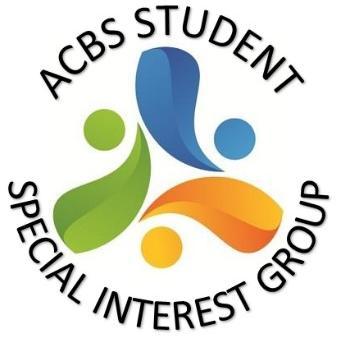
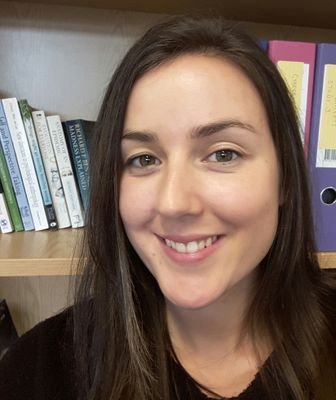
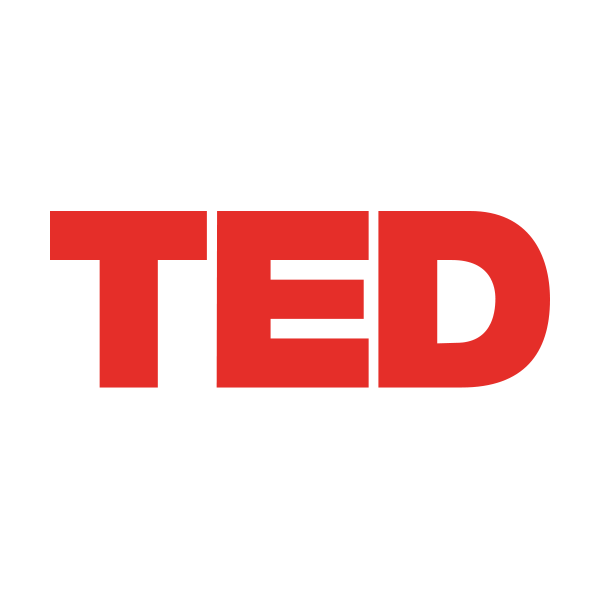
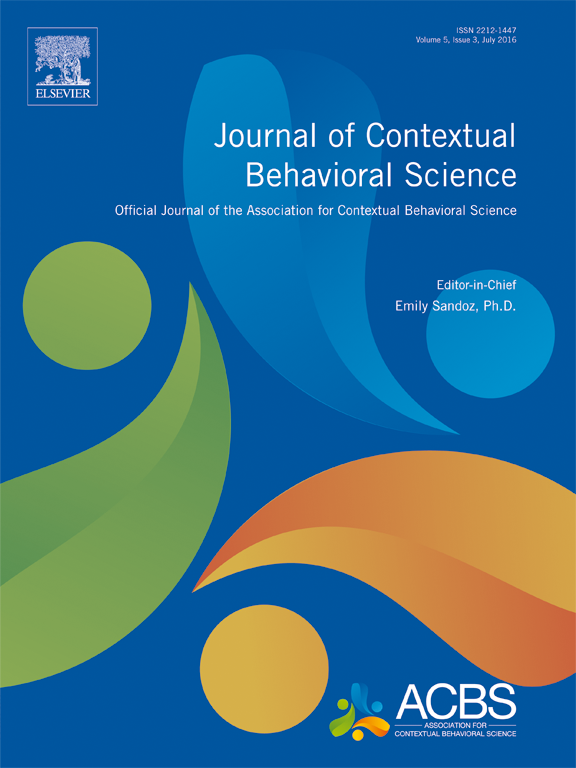




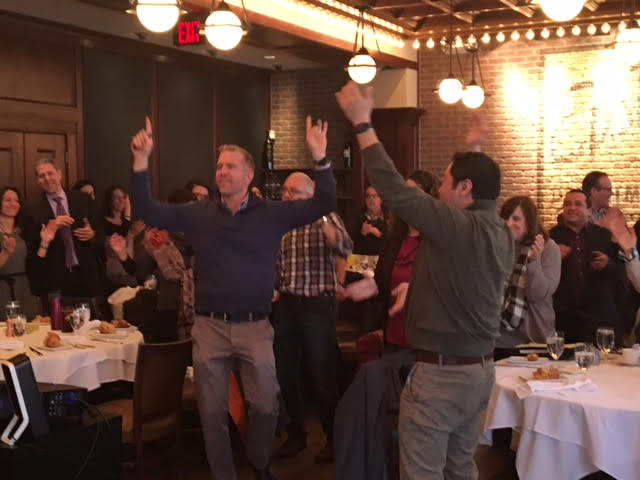


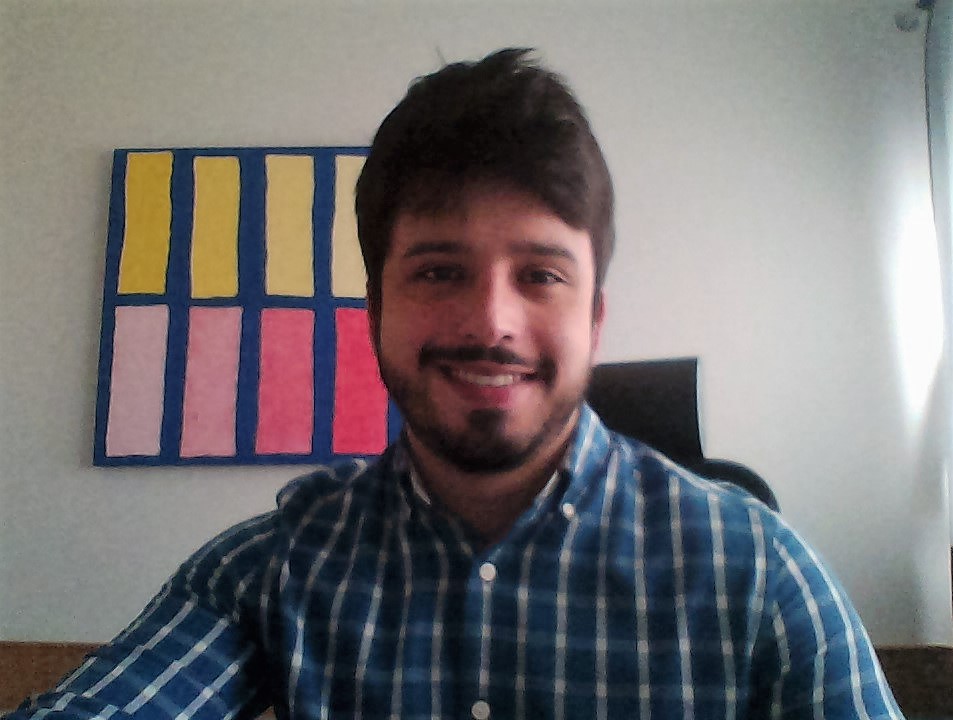
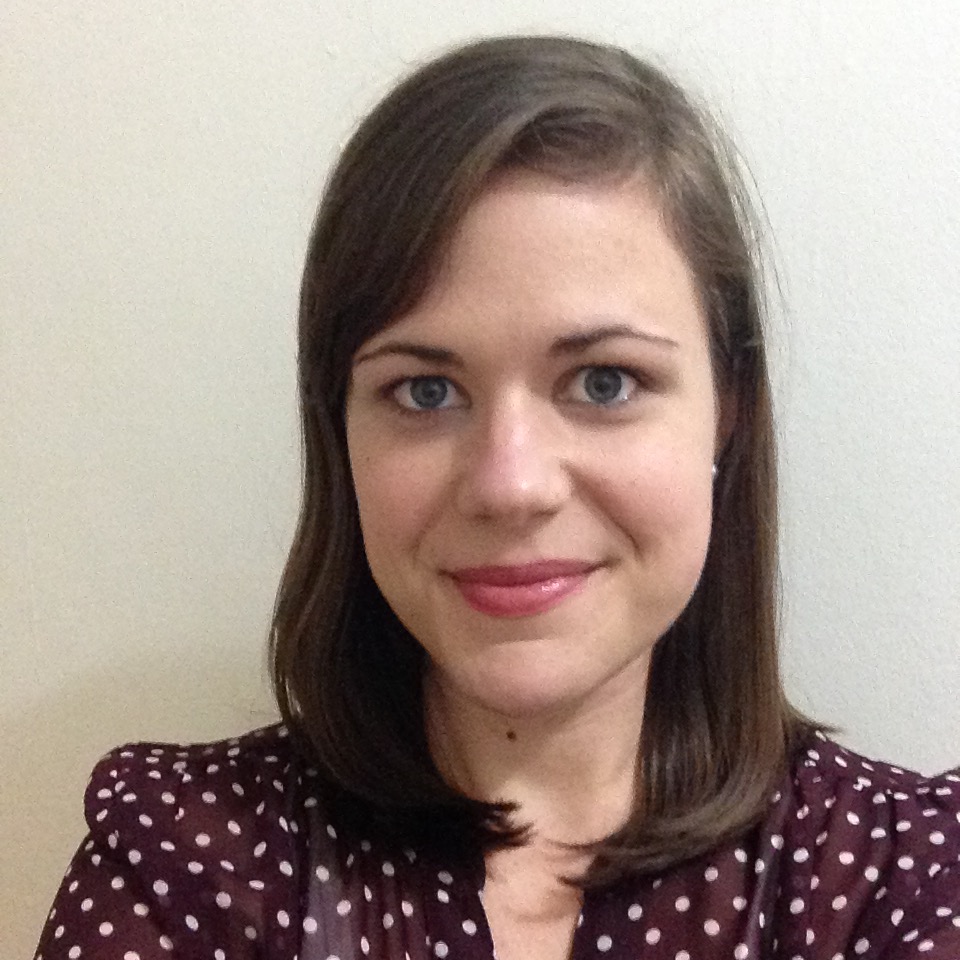
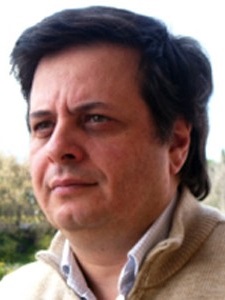
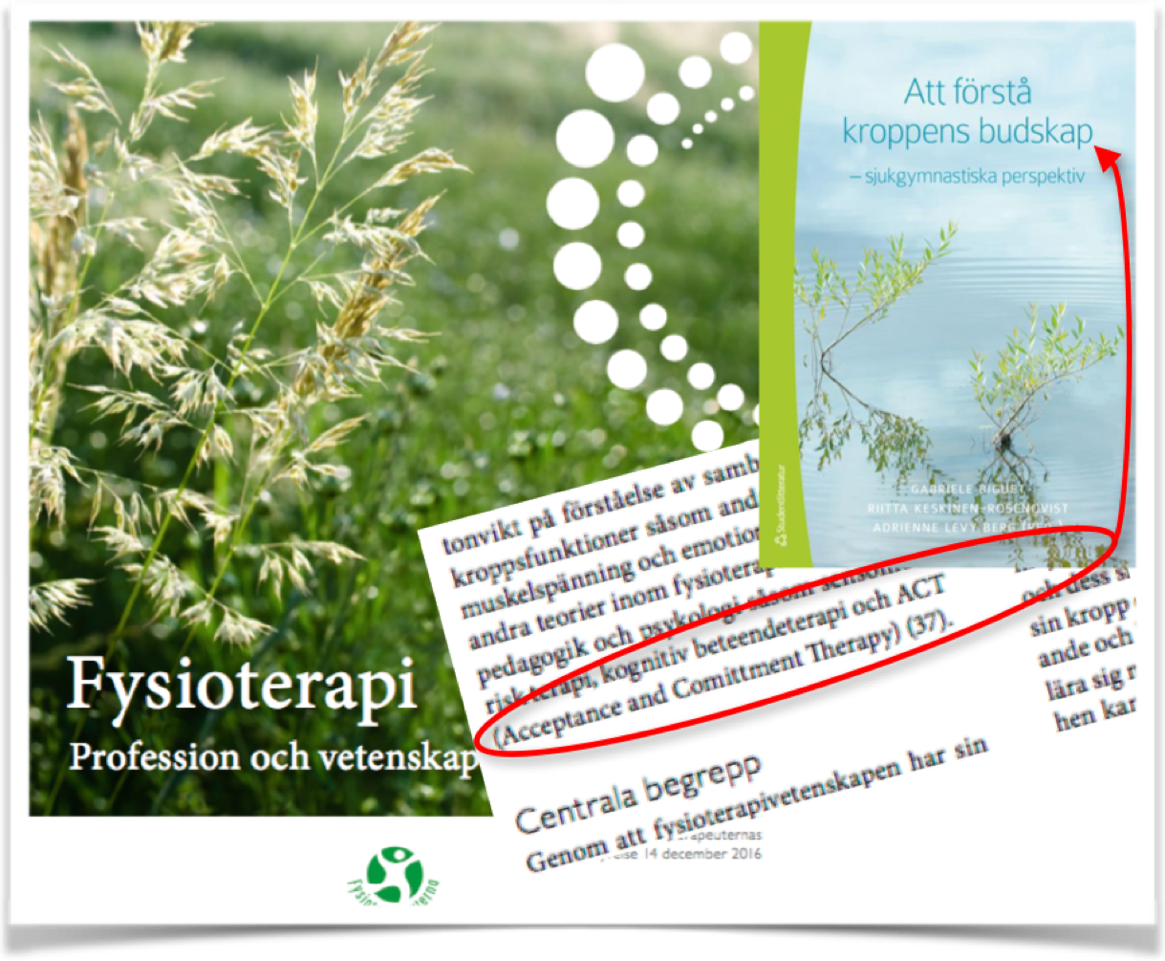
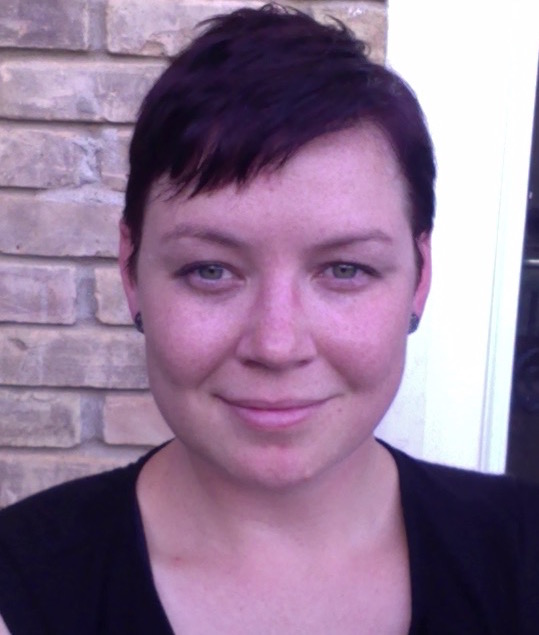
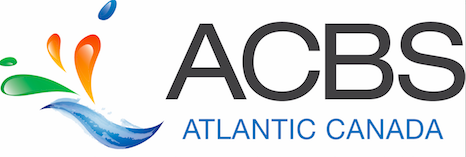
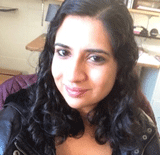

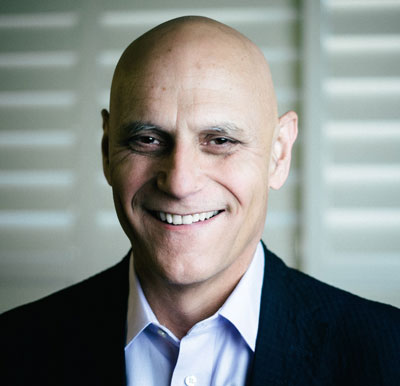

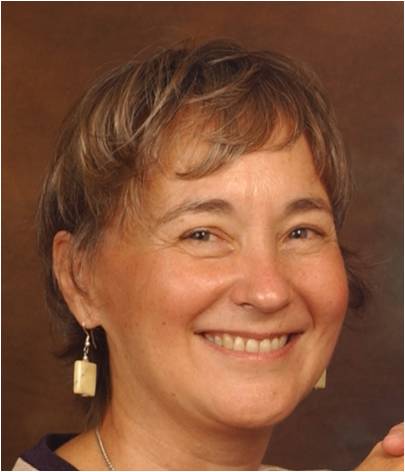
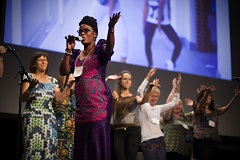


.jpg)
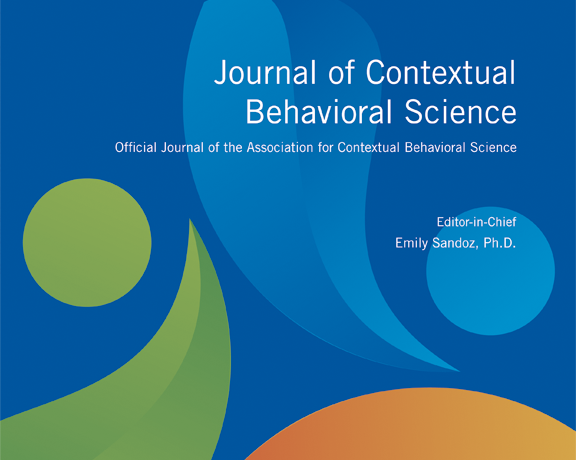



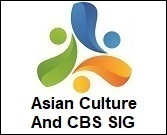
.jpg)



